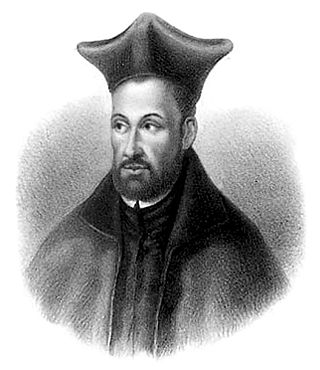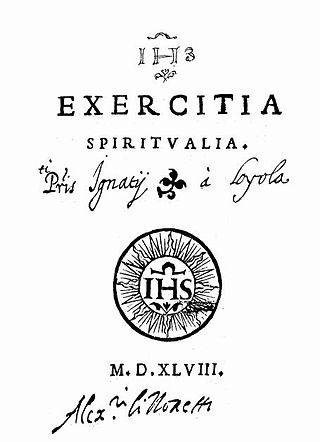Transformative learning, as a theory, says that the process of "perspective transformation" has three dimensions: psychological, convictional, and behavioral.
Transformative learning is the expansion of consciousness through the transformation of basic worldview and specific capacities of the self; transformative learning is facilitated through consciously directed processes such as appreciatively accessing and receiving the symbolic contents of the unconscious and critically analyzing underlying premises.

Experiential learning (ExL) is the process of learning through experience, and is more narrowly defined as "learning through reflection on doing". Hands-on learning can be a form of experiential learning, but does not necessarily involve students reflecting on their product. Experiential learning is distinct from rote or didactic learning, in which the learner plays a comparatively passive role. It is related to, but not synonymous with, other forms of active learning such as action learning, adventure learning, free-choice learning, cooperative learning, service-learning, and situated learning.

Peter Faber was a Jesuit priest and theologian, who was also a co-founder of the Society of Jesus, along with Ignatius of Loyola and Francis Xavier. Pope Francis announced his canonization in 2013.

Andragogy refers to methods and principles used in adult education. The word comes from the Greek ἀνδρ- (andr-), meaning "man", and ἀγωγός (agogos), meaning "leader of". Therefore, andragogy literally means "leading men", whereas "pedagogy" literally means "leading children".

Loyola High School is a subsidized private Catholic school in grades 7–11 located in the Loyola District of the Côte-des-Neiges–Notre-Dame-de-Grâce borough in Montreal. It was established in 1896 by the Society of Jesus as part of Loyola College, at the request of the English Catholic community in Montreal. It is named after St. Ignatius of Loyola, who founded the Jesuit Order in 1534.

The Spiritual Exercises, composed 1522–1524, are a set of Christian meditations, contemplations, and prayers written by Ignatius of Loyola, a 16th-century Spanish priest, theologian, and founder of the Society of Jesus (Jesuits). Divided into four thematic "weeks" of variable length, they are designed to be carried out over a period of 28 to 30 days. They were composed with the intention of helping participants in religious retreats to discern the will of God in their lives, leading to a personal commitment to follow Jesus whatever the cost. Their underlying theology has been found agreeable to other Christian denominations who make use of them and also for addressing problems facing society in the 21st century.
Reflective practice is the ability to reflect on one's actions so as to take a critical stance or attitude towards one's own practice and that of one's peers, engaging in a process of continuous adaptation and learning. According to one definition it involves "paying critical attention to the practical values and theories which inform everyday actions, by examining practice reflectively and reflexively. This leads to developmental insight". A key rationale for reflective practice is that experience alone does not necessarily lead to learning; deliberate reflection on experience is essential.

The Ratio atque Institutio Studiorum Societatis Iesu, often abbreviated as Ratio Studiorum, was a document that standardized the globally influential system of Jesuit education in 1599.
The Christian Life Community (CLC) is an international association of lay Christians who have adopted an Ignatian model of spiritual life. The Community is present in almost 60 countries.
Examination of conscience is a review of one's past thoughts, words, actions, and omissions for the purpose of ascertaining their conformity with, or deviation from, the moral law. Among Christians, this is generally a private review; secular intellectuals have, on occasion, published autocritiques for public consumption. In the Catholic Church, penitents who wish to receive the sacrament of penance are encouraged to examine their conscience using the Ten Commandments as a guide, or the Beatitudes, or the virtues and vices. A similar doctrine is taught in Lutheran churches, where penitents who wish to receive Holy Absolution are also asked to use the Ten Commandments as a guide. The process is very similar to the Islamic practice of Muhasaba, or self-reflection.

Catholic spirituality includes the various ways in which Catholics live out their Baptismal promise through prayer and action. The primary prayer of all Catholics is the Eucharistic liturgy in which they celebrate and share their faith together, in accord with Jesus' instruction: "Do this in memory of me." The Catholic bishops at the Second Vatican Council decreed that "devotions should be so drawn up that they harmonize with the liturgical seasons, accord with the sacred liturgy, are in some fashion derived from it, and lead the people to it, since, in fact, the liturgy by its very nature far surpasses any of them." In accord with this, many additional forms of prayer have developed over the centuries as means of animating one's personal Christian life, at times in gatherings with others. Each of the religious orders and congregations of the Catholic church, as well as lay groupings, has specifics to its own spirituality – its way of approaching God in prayer to foster its way of living out the Gospel.

Magis is a Latin word that means "more" or "greater". It is related to ad majorem Dei gloriam, a Latin phrase meaning "for the greater glory of God", the motto of the Society of Jesus. Magis refers to the philosophy of doing more for Christ, and therefore doing more for others. It is an expression of an aspiration and inspiration. It relates to forming the ideal society centered on Jesus Christ.
Dialogue Education is a popular education approach to adult education first described by educator and entrepreneur Jane Vella in the 1980s. This approach to education is a proprietary commercial product licensed by Vermont-based company Global Learning Partners that draws on various adult learning theories, including those of Paulo Freire, Kurt Lewin, Malcolm Knowles and Benjamin Bloom. It is a synthesis of these theories into principles and practices that can be applied in a concrete way to learning design and facilitation. Dialogue Education is a form of Constructivism and can be a means for Transformative learning,.
The Ignatian Volunteer Corps (IVC) is an American-Catholic volunteer service which matches volunteers with charities and nonprofits. IVC supports members of its corps through monthly faith sharing meetings, occasional retreats, and opportunities for one on one spiritual reflection in the Ignatian tradition.
Archetypal pedagogy is a theory of education developed by Clifford Mayes that aims at enhancing psycho-spiritual growth in both the teacher and student. The idea of archetypal pedagogy stems from the Jungian tradition and is directly related to analytical psychology.
Multiliteracy is an approach to literacy theory and pedagogy coined in the mid-1990s by the New London Group. The approach is characterized by two key aspects of literacy - linguistic diversity and multimodal forms of linguistic expressions and representation. It was coined in response to two major changes in the globalized environment. One such change was the growing linguistic and cultural diversity due to increased transnational migration. The second major change was the proliferation of new mediums of communication due to advancement in communication technologies e.g the internet, multimedia, and digial media. As a scholarly approach, multiliteracy focuses on the new "literacy" that is developing in response to the changes in the way people communicate globally due to technological shifts and the interplay between different cultures and languages.

Ignatius of Loyola, S.J., venerated as Saint Ignatius of Loyola, was a Spanish Catholic priest and theologian, who, with Peter Faber and Francis Xavier, founded the religious order of the Society of Jesus, and became its first Superior General, in Paris in 1541. He envisioned the purpose of the Society of Jesus to be missionary work and teaching. In addition to the vows of chastity, obedience and poverty of other religious orders in the church, Loyola instituted a fourth vow for Jesuits of obedience to the Pope, to engage in projects ordained by the pontiff. Jesuits were instrumental in leading the Counter-Reformation.
Ignatian spirituality, also known as Jesuit spirituality, is a Catholic spirituality founded on the experiences of the 16th-century Spanish Saint Ignatius of Loyola, founder of the Jesuit order. The main idea of this form of spirituality comes from Ignatius's Spiritual Exercises, the aim of which is to help one "conquer oneself and to regulate one's life in such a way that no decision is made under the influence of any inordinate attachment." The Exercises are intended to give the person undertaking them a greater degree of freedom from his or her own likes and dislikes, so that their choices are based solely on what they discern God's will is for them. Even in the composition of the exercises by Ignatius early in his career, one might find the apostolic thrust of his spirituality in his contemplation on "The Call of the Earthly King" and in his final contemplation with its focus on finding God in all things.
Eloquentia perfecta, a tradition of the Society of Jesus, is a value of Jesuit rhetoric that revolves around cultivating a person as a whole, as one learns to speak and write for the common good. Eloquentia perfecta is a Latin term which means "perfect eloquence". The term connotes values of eloquent expression and action for the common good. For Jesuits, the term eloquentia perfecta was understood as the joining of knowledge and wisdom with virtue and morality.

Jérôme Nadal was born on 11 August 1507 in Palma De Mallorca, in the Balearic Islands, Spain, and died on 3 April 1580 in Rome. He was a Spanish Jesuit priest in the first generation of the companions of St. Ignatius of Loyola. A very close collaborator of St. Ignatius of Loyola, the founder of the Society of Jesus, he was sent to explain to the various Jesuit communities of Europe the first draft of the Constitutions. He is known as the "Ignatian theologian" for having developed the theology behind Ignatian spirituality.











